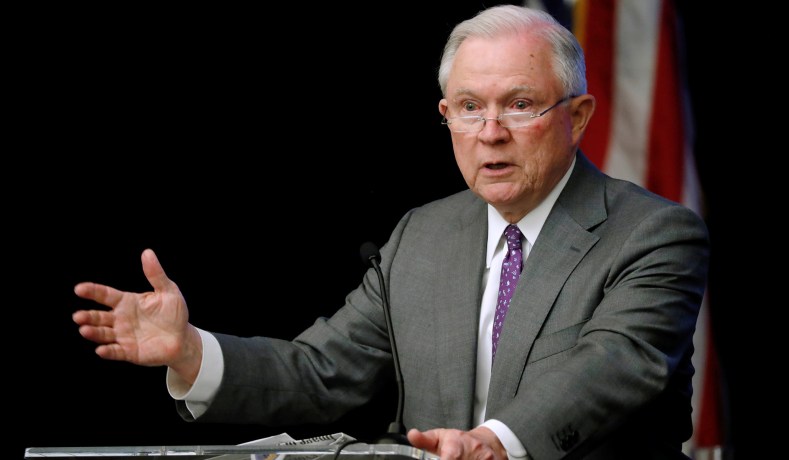
There was a point in early 2017 when Jeff Sessions looked like a shrewd political genius. He had been a moderately well-known longtime senator trying to enact tougher restrictions on immigration with little success. In 2015 and early 2016, almost all Republican senators looked at Trump and saw an erratic, unqualified reality-television host, but Sessions saw something none of his colleagues did. Two days ahead of Super Tuesday, Sessions endorsed Trump, appearing at a Trump rally and declaring “at this time, in my best judgment, at this time in America’s history, we need to make America great again,” and putting on a red “Make America Great Again” hat. Sessions didn’t deliver the nomination to Trump all by himself, but he helped — and hurt Senator Ted Cruz — at a key moment.
When Trump won the presidency, Sessions represented one of his few genuine fans in Washington and important connection to the GOP establishment. Trump nominated Sessions to be attorney general, and it appeared heading up the Department of Justice would be the capstone to Sessions career . . .
. . . and then everything went wrong. Sessions recused himself from investigations into Russia’s interference in the 2016 presidential election, and Trump never forgave him. Trump grew more and more openly contemptuous of Sessions, ridiculing him on Twitter, calling him “beleaguered,” “VERY weak,” and “DISGRACEFUL.” Instead of being a capstone to a long career in Washington, Session’s last job in the nation’s capital was a long exercise in perpetual public humiliation.
Sessions decided he wanted another act in public life and ran for the U.S. Senate again — but lost his primary last night to Tommy Tuberville by a roughly 60–40 margin.
Perhaps the former Alabama senator will stand as a cautionary tale to future senators. Sessions thought he knew Trump, or that he could influence Trump or that Trump would understand if he made decisions contrary to the president’s wishes. Sessions bet completely wrong on all fronts. After his humiliating experience in Trump’s cabinet, Sessions bet that he could win his old seat back, and that his longtime reputation would overcome criticism from a president who still disdained him. Sessions bet wrong again.
Last night, in his concession speech, you could see Sessions coming to terms with the fact that his journey in American politics has come to an end — talking about his younger years and victories from long ago. Defeat is not dishonorable, but it stings nonetheless. The endorsement of Trump that looked like his shrewdest maneuver in 2016 now looks like the first domino in a series that led to his departure from public office.
The next time some outsider celebrity comes along, seeking to run for president, senators should contemplate whether that figure sees loyalty as a two-way street, and just what they would receive in exchange for their endorsement — and whom they are empowering through their endorsement.






